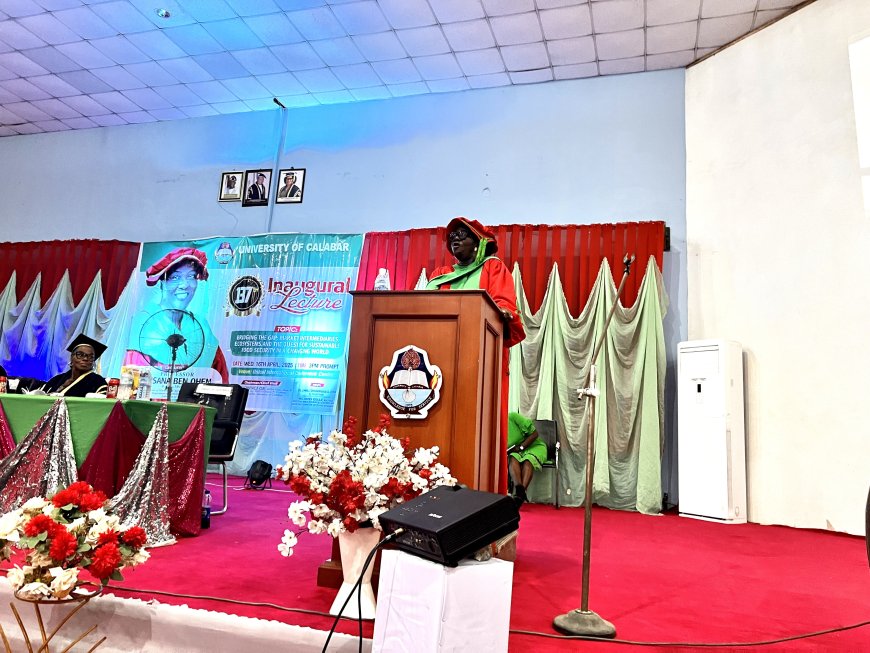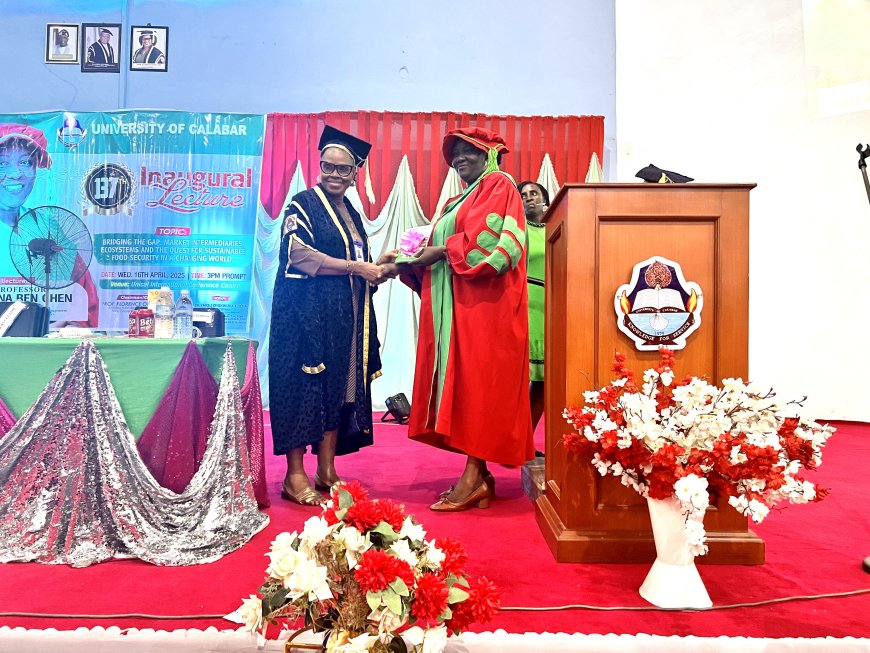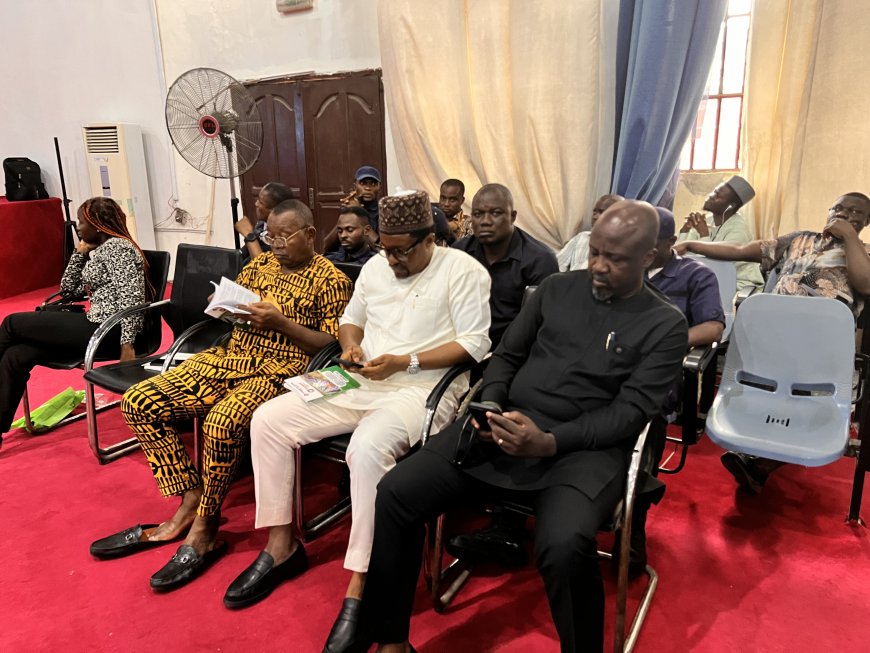UNICAL’s 137th Inaugural Lecture: Prof. Ohen Advocates Market Reforms for Sustainable Food Systems

By Ebi COLLINS
In a momentous academic engagement held at the University of Calabar, Professor Susan Ohen of the Department of Agricultural Economics delivered the institution’s 137th Inaugural Lecture titled “Bridging the Gap: Market Intermediaries, Ecosystems and the Quest for Sustainable Food Security.” The event, which took place at the University’s International Conference Centre, offered a critical examination of the intersection between agricultural marketing systems, ecological balance, and the imperatives of food sustainability.
Anchored on the “Triple Bottom Line” framework—People, Planet, and Profit—Prof. Ohen’s lecture articulated a compelling case for rethinking agricultural value chains through a systems-based, sustainability-driven approach. She emphasized the pivotal role of market intermediaries and policy architecture in shaping food security outcomes and environmental health, particularly in developing economies.

With academic rigour and empirical insight drawn from over two decades of teaching and research, Prof. Ohen chronicled her journey from a Graduate Assistant in 1999 to attaining the rank of Professor in 2018. She paid glowing tribute to her academic mentors—Dr. Nathaniel Penn, Dr. Ekpeni Ekpe, Prof. Sylvanus Obi Abang, and Prof. Marian Solomon—whose intellectual guidance, she noted, deeply influenced her research trajectory in agricultural marketing and agribusiness management.
In an emotional and symbolic moment, Prof. Ohen announced that her daughter, Delight Ohen, was recently named Best Graduating Student in the Department of Agricultural Economics—28 years after she herself received the same honour. This generational academic continuity, she said, underscores the enduring value of scholarship and the legacy of academic excellence.
The high-profile event drew stakeholders from academia, government, and the private sector.
In his remarks, the Cross River State Commissioner for Agriculture and Irrigation Development, Hon. Johnson Ebokpo, lauded the lecture’s alignment with the state’s agricultural transformation agenda. He noted that the government’s strategic focus on climate-smart agriculture, inclusive food systems, and sustainable land use was directly reinforced by Prof. Ohen’s insights.

He further revealed that Prof. Ohen currently chairs a government-appointed committee tasked with formulating a seven-year strategic plan for agricultural development in the state.
Echoing similar sentiments, the Chairman of the Cross River State Forestry Commission, Rt. Hon. George Oben E’tchi, described the lecture as both timely and policy-relevant. He noted that the state’s forestry sector, long plagued by degradation, is undergoing reform, and that the recommendations offered by Prof. Ohen would be instrumental in shaping a greener, more sustainable forestry policy framework.
Representing the university administration, the Chairman of the Committee of Deans, Prof. Ekaette Enang, applauded the Vice Chancellor, Prof. Florence Banku Obi, for sustaining the culture of inaugural lectures as a platform for advancing institutional scholarship. She commended Prof. Ohen for her scholarly contributions to the field of agricultural economics and urged other faculty members to emulate her by using research as a tool for national development.

The lecture was attended both in-person and virtually by a cross-section of academics, students, policymakers, and professionals. Attendees praised the lecture for its scholarly depth, real-world applicability, and visionary recommendations, affirming its place as a seminal contribution to ongoing dialogues around food security, sustainable agriculture, and environmental governance.














































